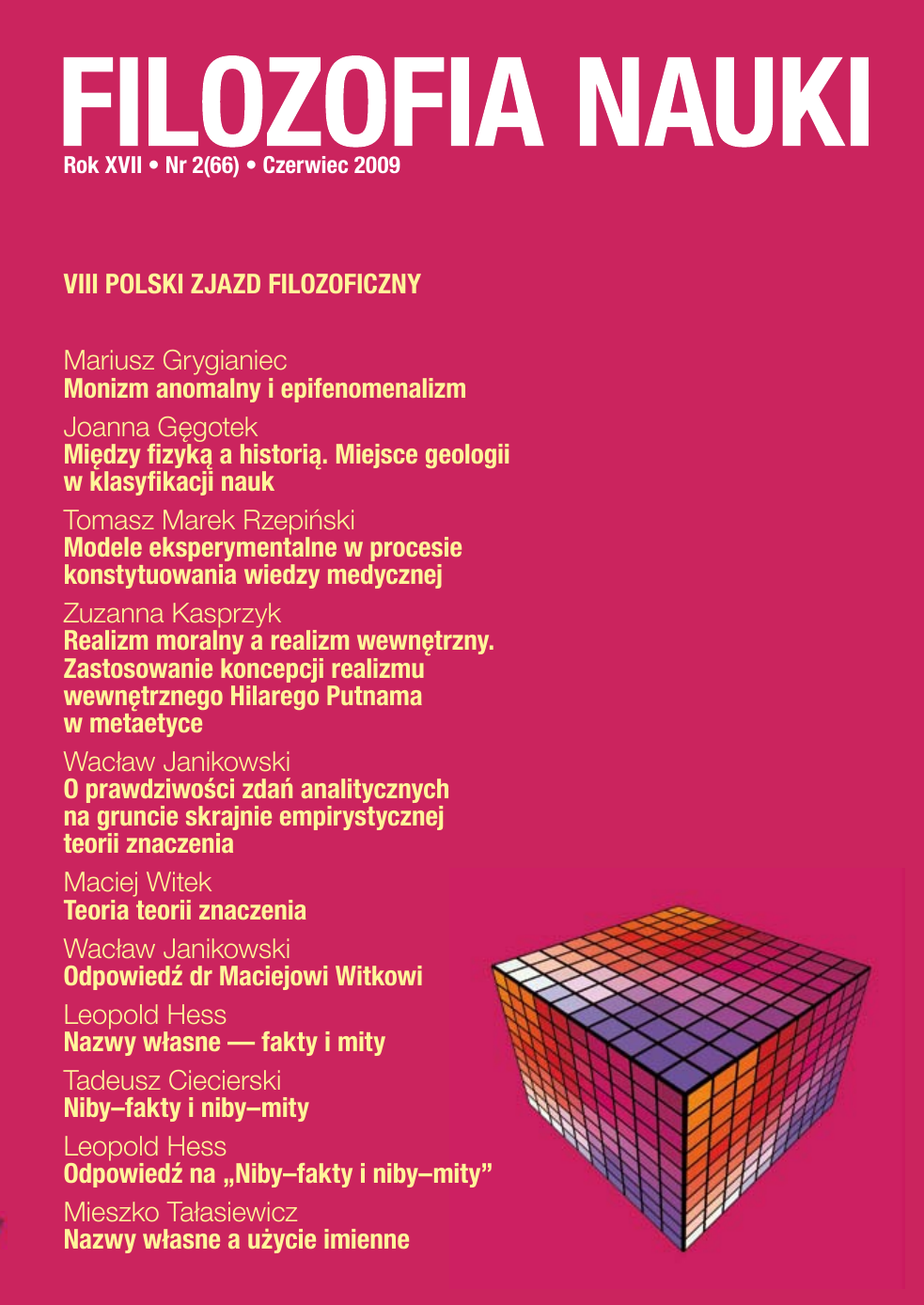Nazwy własne - fakty i mity
Słowa kluczowe:
proper names, new theory of reference, descriptionismAbstrakt
The aim of the paper is to reveal and criticize some of the hidden assumptions of the discussion on the nature of proper names. Those assumptions work in favor of the New Theory of Reference (NTR), which in fact seems more plausible than it should, were the assumptions made explicit. Three theses, it is argued, are assumed with no proof by all sides of the proper names debate: (1) proper names refer to their objects in a different way than common names do; (2) proper names are rigid designators; (3) "we know what we say", i.e. the meaning of a sentence is identical to some cognitive content that is associated with it by the speaker. It is shown that the main source of plausibility of those assumptions, which serve as premises in arguments for the NTR, is the NTR itself.















 Filozofia Nauki | ISSN 1230-6894 | e-ISSN 2657-5868
Filozofia Nauki | ISSN 1230-6894 | e-ISSN 2657-5868